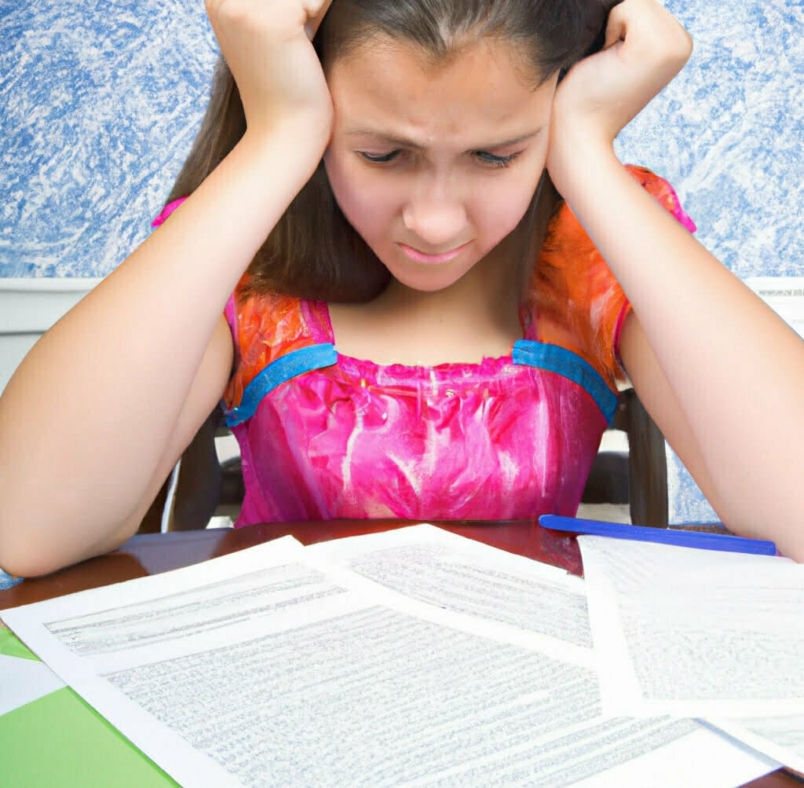Hello brave parents and caregivers!
ADHD is a hot-button topic that comes up A LOT in friend and social media circles, often with questions (and controversy) about its diagnosis and treatment. Whatever your stance, I’m here to tell you that ADHD can affect a person well beyond the textbook criteria of inattention, hyperactivity, and/or impulsivity.
There are features of ADHD that hugely impact functioning, but are not often discussed. To characterize these features is to have a better understanding of a day in the life of a person with ADHD.
So, let’s explore ADHD beyond the textbook.
The ADHD Brain
To better understand ADHD, let’s first talk about the ADHD brain. Any brain needs to be motivated to engage and function. Motivation relies on reward, which is controlled by dopamine. Dopamine is responsible for pleasure and motivation. This is how it works: When we do something we like (e.g., eating a brownie), dopamine is released, we feel good, and we’re motivated to do it again.
Dopamine transmission in the ADHD brain is impaired.1 Therefore, a child with ADHD needs higher levels of stimulation than a child without ADHD to activate the dopamine reward system. Making mom happy by doing homework is just not rewarding enough to motivate him to engage. But, doing something he likes is a totally different story. 2
ADHD: What You Really Need to Know
Attention Dysregulation
ADHD doesn’t just involve inattention, it involves dysregulation of attention. Individuals with ADHD are motivated by interest, not by doing what others ask of them. Doing something interesting stimulates the brain, releases dopamine, feels awesome, and BOOM!—your child is locked in on painting for hours on end. This is why kids with ADHD can focus for an extended period of time on video games or music (aka “hyperfocus”), while attending to a mundane task, like cleaning up, is challenging for even a brief amount of time.
Attention dysregulation can also involve being overly attentive to surrounding sights and sounds; these kids with ADHD struggle to tolerate any stimulation in their environment. They may avoid social activities and isolate themselves to reduce stimulation and feel calm. 2
Behavior Dysregulation
Individuals with ADHD tend to get bored easily. They may seek faster or more intense experiences, like high-action video games, taking drugs, or driving too fast, to stimulate their brains and relieve boredom.
Similarly, when children with ADHD feel understimulated and bored, they may become loud or fidgety in an effort to stimulate their brains. So, fellow parents, please try to be patient, disruptive behavior in your child with ADHD may not be intentional. 2
Sleep Dysregulation
Studies show that 25-80% of children with ADHD demonstrate a clinical level of sleep problems. 3 This usually means high activity in the evening, and, you guessed it, trouble settling for bed resulting in a late bedtime. Attention dysregulation may also contribute; at night, the active child may continue to feel driven to seek out high stimulation (e.g., doing what interests her—definitely not lying bed!) making it difficult to shift her focus to the task at hand — bedtime.
Emotion Dysregulation
As in HoliADHD, children with ADHD struggle to regulate their response to stimuli; for some, this results in a tendency to overreact. Parents of kids with ADHD commonly report that their child’s anger erupts like a light switch, often with little provocation. And any emotion—joy, frustration, sadness— can be experienced intensely. The quick, reactive, and intense emotions of ADHD can create stressful home and school environments for all involved.
Sensitivity
Children and adolescents with ADHD can be also overly sensitive; justice and rejection sensitivity are two types of sensitivity seen.
What is Justice Sensitivity?
Kids with justice sensitivity often perceive themselves as victims of an unjust situation and may experience anxiety, react with anger, or seek retaliation in response. For instance, a child may feel that he was somehow treated unfairly by his teacher, seethe with anger, and have trouble letting it go.
What is Rejection Sensitivity?
Similar to justice sensitivity, kids with rejection sensitivity are super sensitive to criticism or teasing and feel intense anger, anxiety, or feel like complete failures in response to any perceived rejection. They may socially withdraw or become people pleasers to avoid rejection at all costs. 4
Brave parents and caregivers,
If you find yourself constantly frustrated with your child with ADHD, my hope is that gaining deeper insight into your child’s behavior will foster nonjudgement, acceptance, and compassion.
Or, if any of this sounds familiar and you believe your child may be struggling with ADHD symptoms, please seek an evaluation–your pediatrician is a good place to start.
By now, you may have guessed that ADHD has the capacity to render pervasive and far-reaching effects. This week, I’ll continue the deep dive into ADHD and explore some of its potential mental health, social, legal, and psychological consequences. Parents and caregivers, please stay tuned!
Until next time,

References
- Tripp G and Wickens JR (2009). Neurobiology of ADHD. Neuropharmacology. 57:579-589.
- Littman, E. (2022) Never Enough? Why ADHD Brains Crave Stimulation. ADDitude. https://www.additudemag.com/brain-stimulation-and-adhd-cravings-dependency-and-regulation/
- Bar M, Efron M, Gothelf D, Kushnir J (2016). The link between parent and child sleep disturbances in children with attention deficit/hyperactivity disorder. Sleep Medicine. 21: 160-164.
- Bondü R and Esser G (2015). Justice and rejection sensitivity in children and adolescents with ADHD symptoms. Eur Child Adolesc Psychiatry, 24: 185-198.


